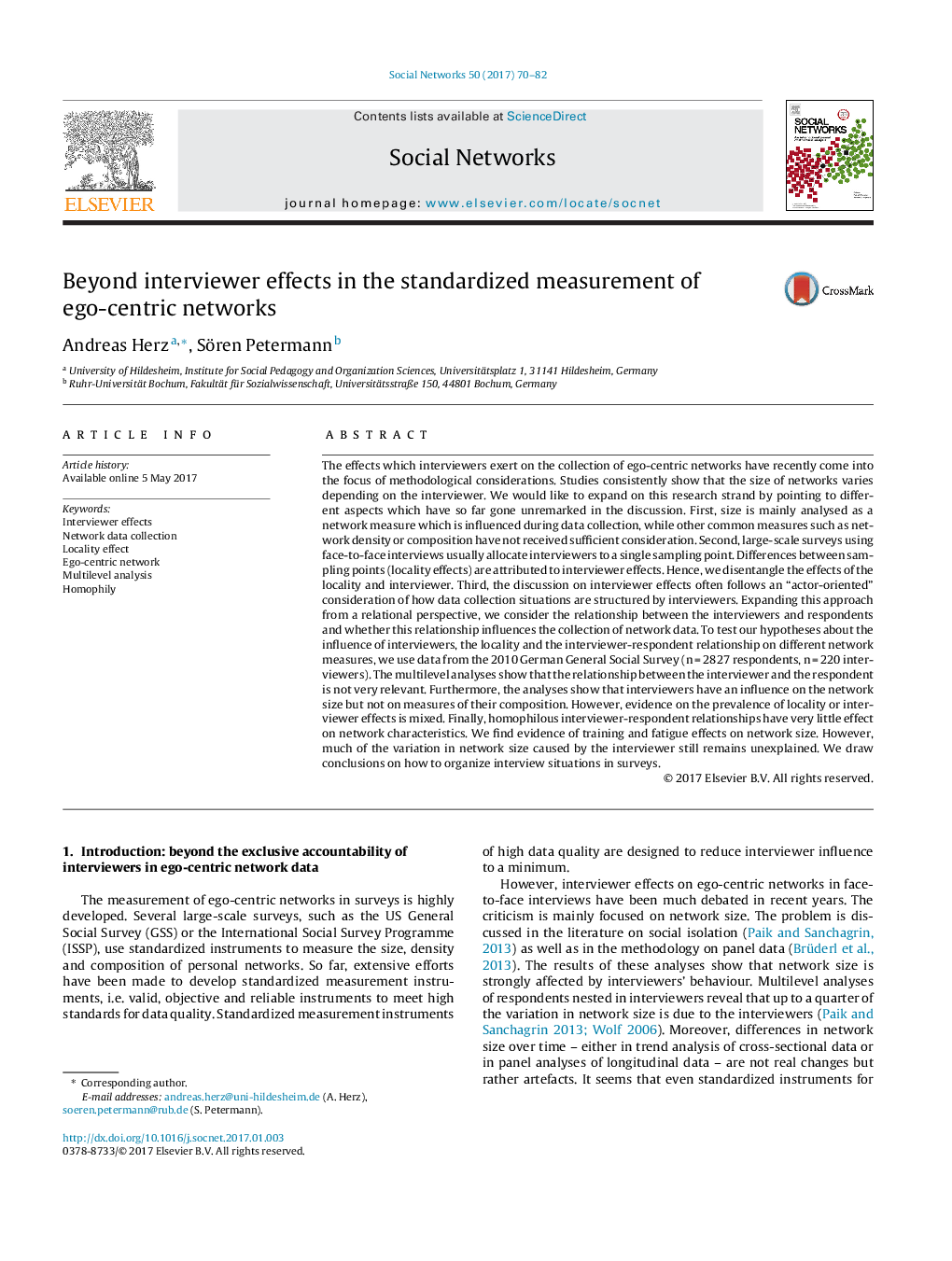| کد مقاله | کد نشریه | سال انتشار | مقاله انگلیسی | نسخه تمام متن |
|---|---|---|---|---|
| 5126778 | 1488849 | 2017 | 13 صفحه PDF | دانلود رایگان |
- We analyse the effects of interviewers, localities and interviewer-respondent relationships on several characteristics of ego-centric networks.
- Interviewer effects are found for network size but not for network density, network homophily or compositional measures.
- Locality effects due to sampling points are marginal.
- Interviewer age has a negative effect on network size, interviewer education a curvilinear, positive effect.
- Only homophily in gender between the interviewer and respondent has a significant positive effect on network size.
The effects which interviewers exert on the collection of ego-centric networks have recently come into the focus of methodological considerations. Studies consistently show that the size of networks varies depending on the interviewer. We would like to expand on this research strand by pointing to different aspects which have so far gone unremarked in the discussion. First, size is mainly analysed as a network measure which is influenced during data collection, while other common measures such as network density or composition have not received sufficient consideration. Second, large-scale surveys using face-to-face interviews usually allocate interviewers to a single sampling point. Differences between sampling points (locality effects) are attributed to interviewer effects. Hence, we disentangle the effects of the locality and interviewer. Third, the discussion on interviewer effects often follows an “actor-oriented” consideration of how data collection situations are structured by interviewers. Expanding this approach from a relational perspective, we consider the relationship between the interviewers and respondents and whether this relationship influences the collection of network data. To test our hypotheses about the influence of interviewers, the locality and the interviewer-respondent relationship on different network measures, we use data from the 2010 German General Social Survey (n = 2827 respondents, n = 220 interviewers). The multilevel analyses show that the relationship between the interviewer and the respondent is not very relevant. Furthermore, the analyses show that interviewers have an influence on the network size but not on measures of their composition. However, evidence on the prevalence of locality or interviewer effects is mixed. Finally, homophilous interviewer-respondent relationships have very little effect on network characteristics. We find evidence of training and fatigue effects on network size. However, much of the variation in network size caused by the interviewer still remains unexplained. We draw conclusions on how to organize interview situations in surveys.
Journal: Social Networks - Volume 50, July 2017, Pages 70-82
